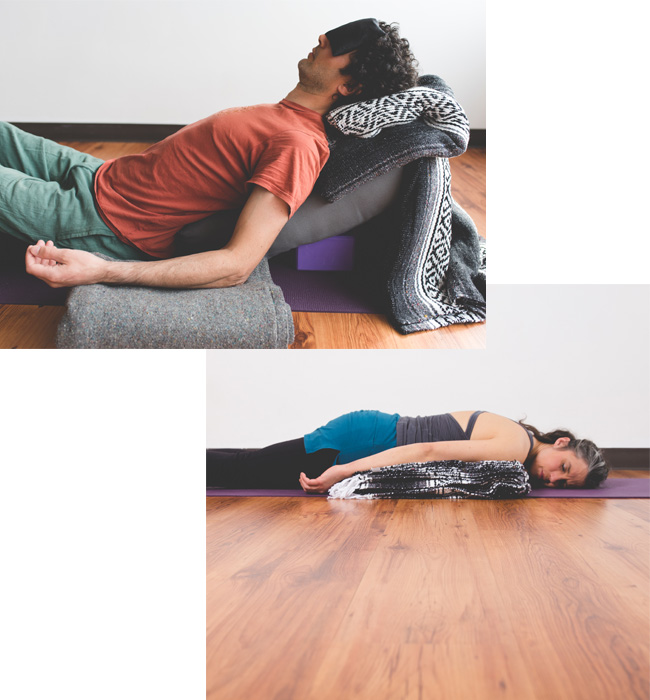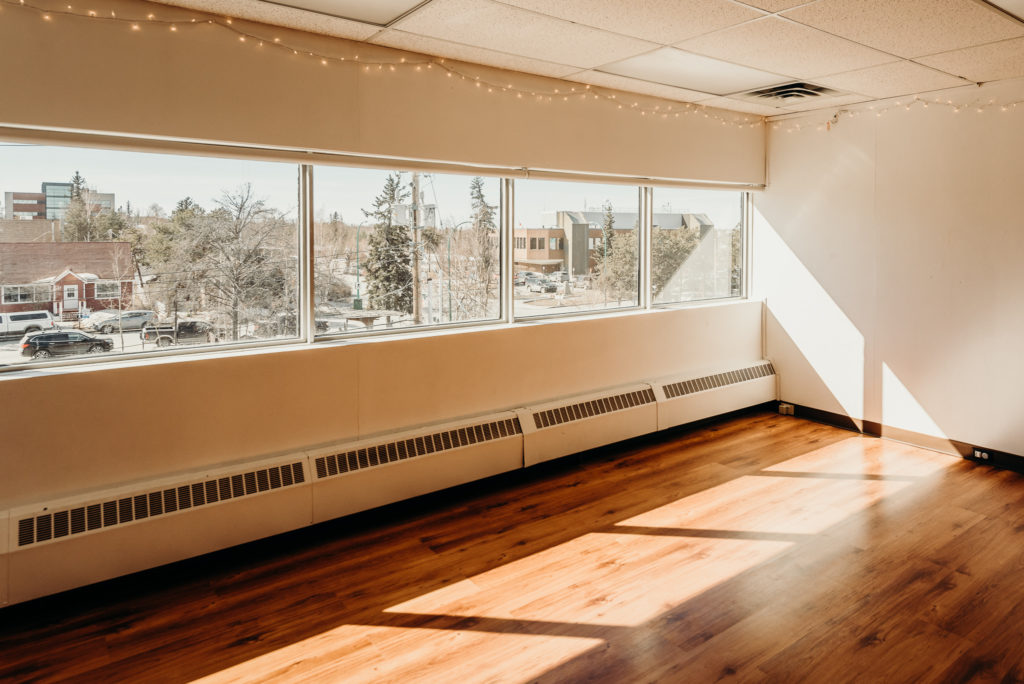What is Restorative Yoga?
“Restorative Yoga is the use of props to support the body in positions of comfort and ease in order to facilitate health and relaxation.”
– JUDITH LASATER
Restorative yoga is the yoga of relaxation. Instead of using active yoga postures as found in other forms of yoga, in restorative yoga the body is placed in positions that are receptive. These positions are supported by props and are held for 5, 10 or even 20 minutes. This is a powerful practice that is designed to elicit the relaxation response and promote deep mental, physical and emotional healing.
Click here to find upcoming Restorative Yoga Classes >
Why is Relaxation Important?
In our modern lives it appears as if stress abounds. Stress is not a “feeling” or a “state of mind”. Stress is a physiological response to what your body and mind perceive as threatening. Once you perceive a threat your brain signals a complex series of hormonal interactions that give rise to the “fight or flight (or freeze)” response of the sympathetic nervous system. Blood moves faster to the heart, muscles and vital organs and is shifted away from non-essential systems (like the digestive system).
From an evolutionary perspective, this stress response helped us escape or respond to real and life-threatening danger. When the danger passed, hormonal levels returned to their resting state and the parasympathetic nervous system (responsible for “rest and digest”) took over.
In today’s world many of us are activating our stress response for situations that are non-life-threatening (a job we don’t like, running late for an appointment, family difficulties, or feeling overwhelmed with our “to do” list and time). In addition, we are experiencing chronic stress, maintaining the activation of our “fight or flight” response.
Over time, continued levels of stress hormones can cause our health to deteriorate and contribute to a variety of health conditions such as cardiovascular disease, high blood pressure, insomnia, decreased immune function, diabetes, memory loss, depression, fibromyalgia and digestive disorders.

The remedy for chronic stress is relaxation. The “Relaxation Response”, coined by Dr. Herbert Benson, is the physiological and mental response that occurs when a person consciously relaxes. It is the body’s ability to experience a decrease in heart rate, breathing rate, blood pressure, and muscle tension.
Regularly practicing relaxation techniques that elicit this response can help to reverse the emotional and physical effects of stress. Specific benefits include reduced anxiety, improved concentration, increased energy, improved sleep, and benefits to your cardiovascular, immune and digestive systems.
Practicing relaxation is not about making your problems go away; it is about altering how you respond to them.
Practicing relaxation on a regular basis can help you change how you perceive stress and create the conditions necessary to maintain your ease.
Check out upcoming Restorative Yoga and other Relaxation-focused Classes & Workshops – on the events page!


